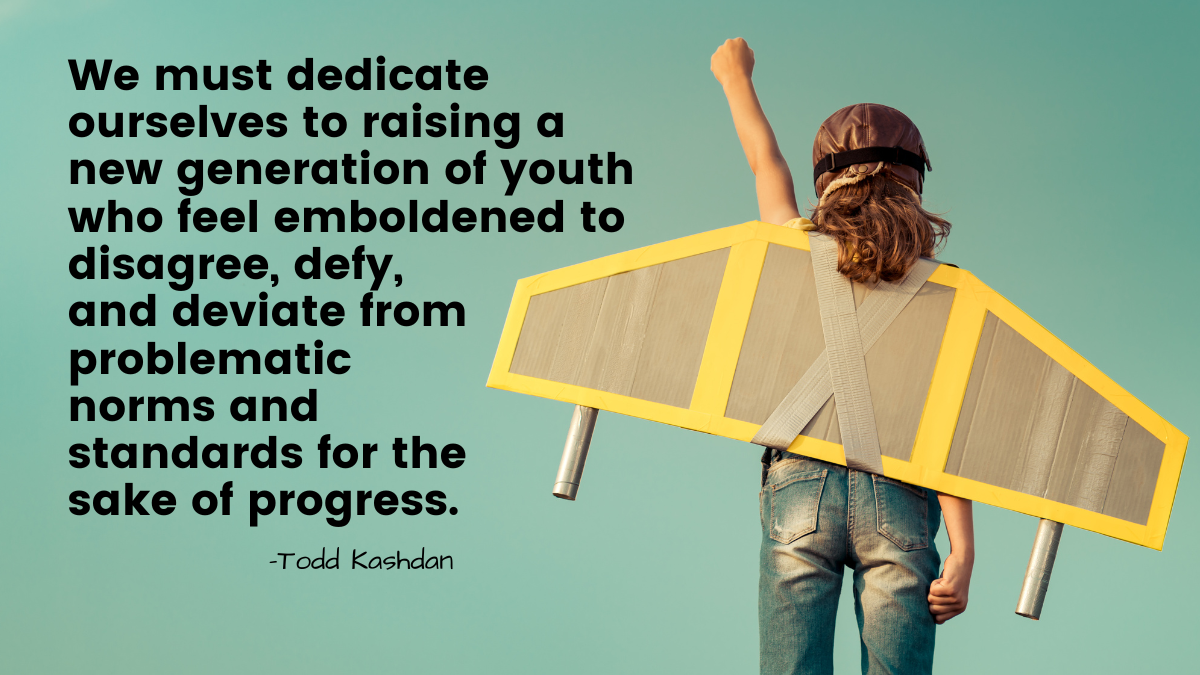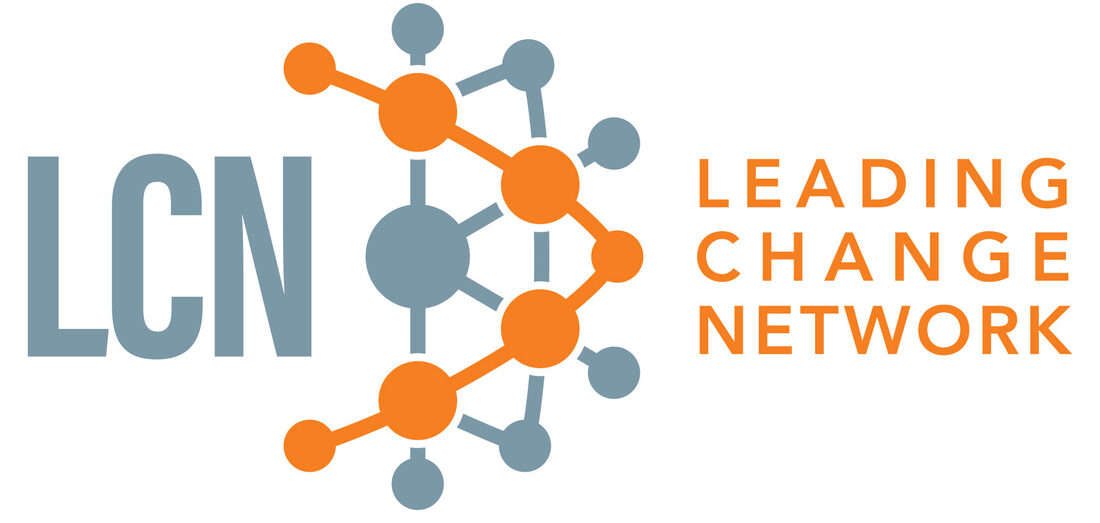|
I really enjoyed Todd Kashdan’s book The Art of Insubordination: How to Dissent & Defy Effectively. He writes all kinds of fun, helpful things for “anyone seeking to be heard, make change, and rebel against an unhealthy, stagnant status quo.” Like a chapter called The Critical Importance of Cartwheeling in the Library, and another with the subtitle How to win over an audience of skeptical conformists. He calls us principled rebels, which I enjoy very much. He shares evidence-based advice on how to talk persuasively, develop mental fortitude even when your ideas are routinely shot down, prevent moral hypocrisy if you win, be a better ally to other principled rebels, overcome our own internal resistance to change, and foster environments where people can speak up with weird ideas. But today I want to share the takeaways from the chapter on raising insubordinate kids. The book is dedicated to the author's three daughters: “My hope is you are empowered to rebel against every norm, rule, order, and authority figure that warrants insubordination, and you live life on your own terms.” I know it would be easier for us if the kids could be compliant while they were young and then suddenly become free-thinking agents of change once they moved out, but that isn’t usually how these things work. So if you are a parent/aunt/uncle/teacher/librarian interested in encouraging the principled rebels of tomorrow, read on. Kashdan gives us three main strategies to help the kids in our lives be insubordinate for good:
1. Foster a sense of agency. “To raise principled rebels, youth must believe they can make a difference.” Kashdan notes that one way to build kids’ confidence in their competence is to remind them of their past successes. We can do this by asking them about experiences they define as successes. We can ask them to list positive changes they have made, skills they have learned, accomplishments of which they are proud, and times they took a stand. Another tactic is to take an interest in your kid’s interests and champion them by listening and offering emotional support rather than advice. Studies confirm that having supportive, interested adults in their lives helps youth grow into principled rebels by becoming more curious and courageous. If they are nervous or anxious, we can affirm that is natural when trying new things, which helps them accept these negative feelings and move through them. And of course, we can support autonomy. “Rebels, by definition, feel a strong sense of freedom to go their own way. That mentality has to come from somewhere.” Research has shown that youth explore and discover best when they are allowed to solve problems themselves. Setting aside our desire to remove discomfort allows youth to build mastery and confidence. Creating opportunities for kids to teach other kids is another great way to accomplish this. We can further support autonomy by validating their points, acknowledging their perspectives and experience, noting signs that they are improving or mastering a skill and connecting it to their personal goals, and providing hints rather than solutions when they get stuck. 2. Build critical thinking skills. “Principled insubordination hinges on a person’s ability to sift through information at their disposal, filter out useful stuff from the bullshit, and convince others to accept the useful stuff as well.” Kashdan suggests that the point is not to make kids cynical but to take a “trust but verify” approach to information, with youth becoming comfortable asking questions, suspending judgment, and slowing down their analytical process. We can help with this by posing reflective questions and thought experiments rather than lecturing or bludgeoning them with facts when they come to seemingly incorrect conclusions. In other words, we can teach them how to think instead of what to think. We can ask:
“Youth benefit when they learn about the messy life stories of successful and unsuccessful insubordination. …Teach kids to see themselves as…the person who intervenes when injustice presents itself.” Studies have shown that students who learn about the real-life drama of scientists and their work are more engaged in STEM subjects. Learning about Nikola Tesla’s rivalry with Thomas Edison and all the interpersonal relationships and politics of science made scientific discovery all the more appealing to teenagers. Researchers found that students exposed to this story-based approach to teaching not only retained more of the factual information being taught, but also showed a greater appreciation and willingness to push back on widely accepted ideas compared to peers taught using a traditional, lecture-based approach. Similar findings emerged from a study teaching about the civil rights movement through the story of principled insubordinate Elizabeth Jennings. We can help kids use biographical information to learn about taking risks and the importance of acting on one’s values. Relating the stories back to their own lives can help them consider the realistic trade-offs of standing out against the herd. We can also teach kids about bravery - not just physical bravery but also moral bravery. This includes honesty and authenticity. We can expose kids to various forms of courage by pointing out when we see them acting bravely, or when we have acting courageously ourselves. We can also discuss times when we or others have taken a more cowardly path, why that might have happened, and consider how we would like to behave should the situation arise again and what steps we can take to be ready to do so. Sometimes bravery is a series of small choices that we make over time. We can also talk about the fear of retribution or retaliation. Our child’s fears are not unfounded, and they may be very different from our own, just like their strengths and skills may differ from ours. We can offer empathy and make it clear that our love is not contingent on their bravery. Finally, we can impress upon our kids that the things about them that set them apart are the exact things that will benefit the world the most. Hopefully, some of these suggestions from the book are useful and applicable to you and the kids in your life. The world needs principled insubordinates now more than ever!
0 Comments
Leave a Reply. |
AuthorI'm Jennifer. I am an advocacy and communications strategist working with multiple charities and nonprofits. And I want to disrupt our sector for good. Archives
April 2024
Categories |


 RSS Feed
RSS Feed
